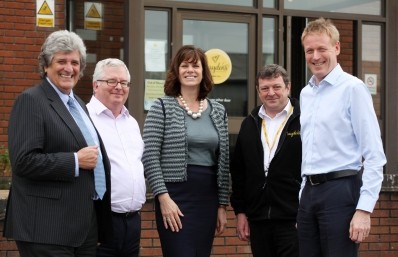Tax on sugary drinks may be extended after review

“Peter Dowd [Labour’s shadow chief secretary to the Treasury] told me that there was going to be a two-year review [of the sugar tax], which I thought was great news,” Sharon Hodgson, shadow minister for public health, informed the Westminster Food and Nutrition Forum seminar on sugar reduction policy on Thursday [April 27].
“Basically they have put a clause in [the soft drinks industry levy bill] that it will be looked at with regards to extending – perhaps to sugary milky drinks, maybe confectionery or just extending [generally]. So they will look at how it is working and will prove that it will work and, hopefully, extend it. I’m ever the optimist and am hoping for extension rather than contraction.”
Childhood obesity in the Labour manifesto
Hodgson also hinted that when the Labour Party manifesto for the general election was published, it could include a number of measures designed to improve public health, including ones targeted at reducing childhood obesity.
“As long as it gets past Jeremy [Corbyn] and the [Labour Party] National Executive Committee, I’ve managed to get lots of good things in on children’s health and things that weren’t in the [government’s] Childhood Obesity Plan and should have been.”
Hodgson chaired the first session of the seminar on ‘key perspectives on creating healthy food environments and informed consumer choices’, which also included presentations by Duncan Stephenson, director of external affairs with the Royal Society of Public Health, Sue Davies, strategic policy adviser for Which? and Tim Smith, strategic adviser to Tesco.
Stephenson supported the idea of extending the coverage of the levy: “When I talk about the [need for] government action, leadership and measures, in all the interventions that have happened, it’s about being evidence led and part of that evidence-led approach is about having good evaluation and good monitoring as well.”
Support for extending the sugar tax beyond soft drinks to items such as confectionery, cakes, and pastry also came from Heather Peace, head of public health nutrition with Food Standards Scotland, who also spoke at the seminar.
The food industry, notably the British Soft Drinks Association and Food and Drink Federation, has argued vehemently against the sugar levy. It has claimed that it would not have the desired effect of reducing obesity and unfairly targeted a single category. Both orgnaisations claimed that soft drinks manufacturers had already done much to reduce the calorie content of their products through the use of low- and zero-calorie variants that made use of high intensity sweeteners.
Sugar tax in Mexico
However, Malcolm Clark, co-ordinator of the Children’s Food Campaign, who also spoke at the event, presented the results of an academic study reported earlier this year on the impact of the sugar tax imposed on soft drinks by Mexico in 2014, which reported a 5.5% drop in the first year after the tax was introduced followed by a 9.7% decline in the second year.
Most speakers recognised that there was no “silver bullet” and that the soft drinks sugar tax alone would not reduce rising obesity numbers and the huge cost this imposed on the National Health Service.
Tesco’s, Smith reported on the work Britain’s largest retailer had undertaken to reformulate its own-label products to make them healthier, including reducing the sugar contact of soft drinks it sold. He also announced that Tesco had more plans in the pipeline to help consumers tackle obesity.

















